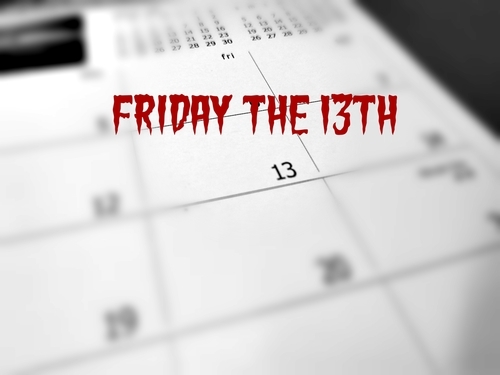Friday the 13th and mortality risk: An informal meta-analysis
M3 Global Newsdesk Apr 13, 2018
Today, Friday the 13th is associated with bad luck; several 'medical' studies have tried to test and explain this association in the medical context.

While it’s almost impossible to find evidence for or against the specific danger of a given day of the year, several studies have attempted to address this.
Many people—thanks to a certain movie franchise and articles such as this one—continue to associate Friday the 13th with bad luck, spooky happenings, and general unease. However, in Italy, Friday the 17th gets a bad reputation, while in many Spanish-speaking countries, Tuesday the 13th is considered unlucky.
In the early 1990s, a group of British researchers waded into the debate by applying scientific rigor to the age-old superstition. Their study found that while a smaller percentage of cars were on the road on Fridays the 13th when compared to other days over the course of several years, the risk of hospital admission due to car accidents spiked as much as 52% on the unlucky day.
While the number of admissions from car accidents was too small to warrant meaningful analysis, the authors concluded—perhaps dryly—that “staying at home is recommended.” The data were inconclusive, but that did nothing to put a damper on the superstition.
Perhaps the focus of that study was too narrow?
In 2011, Schuld et al. expanded the criteria to include the impact of Friday the 13th, lunar phases, and zodiac signs on emergency operations, intestinal perforations, and intraoperative blood loss.
The study encompassed 111 lunar cycles and 15 Fridays the 13th (or, in other words, 3,281 days). Results showed that patient characteristics did not differ according to lunar phases, zodiac signs, or whether it was Friday the 13th. In addition, none of these influenced emergency frequency or intraoperative blood loss. “Our data indicate that such beliefs are myths far beyond reality,” the authors wrote.
Maybe it’s just Fridays in general?
While prior research has shown a “weekend effect” in which mortality risk is increased when a patient is admitted over a weekend, few studies outlined the mechanism for such a finding. It was largely assumed to be due to a lack of hospital staffing over the weekend, but no concrete evidence has been found.
In a study published in The Lancet in 2017, researchers found that patient characteristics, not hospital staffing, may be the culprit. The study included individual-level analyses that had not been included in the other studies, such as hematology, biochemistry, and microbiological testing.
In the study, 15 hematology and biochemistry test results were highly prognostic for mortality. In more than half of admissions with complete data, these test results explained 33% of the excess mortality associated with weekend admission.
In short, fewer people admitted over the weekend had normal laboratory findings when compared with those admitted during the week. The findings appeared to clear the weekend of any wrongdoing in terms of “unluckiness” of the patients.
While research into Friday the 13th is likely to continue, the date on the calendar is unlikely to have any significant effect on patient outcomes.
This story is contributed by Paul Basilio and is a part of our Global Content Initiative, where we feature selected stories from our Global network which we believe would be most useful and informative to our doctor members.
-
Exclusive Write-ups & Webinars by KOLs
-
Daily Quiz by specialty
-
Paid Market Research Surveys
-
Case discussions, News & Journals' summaries